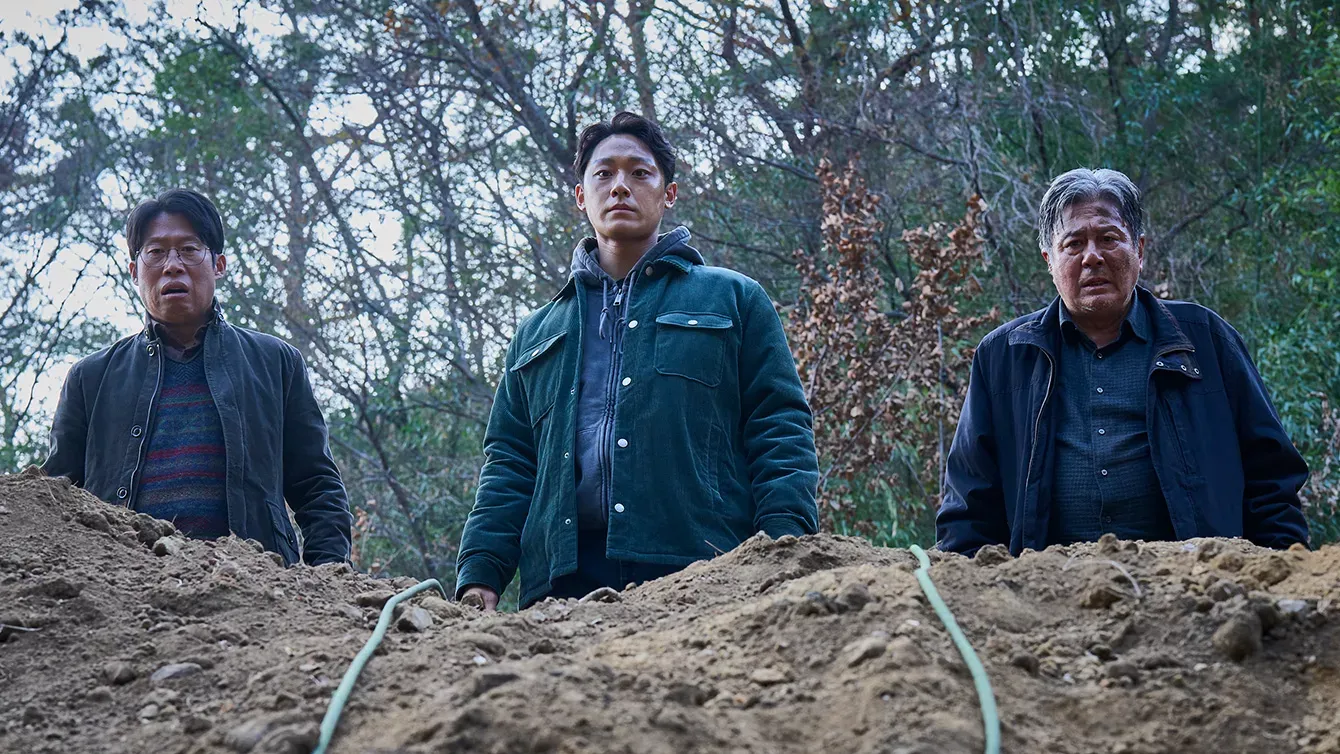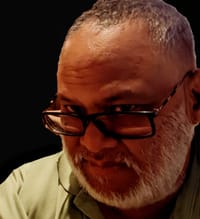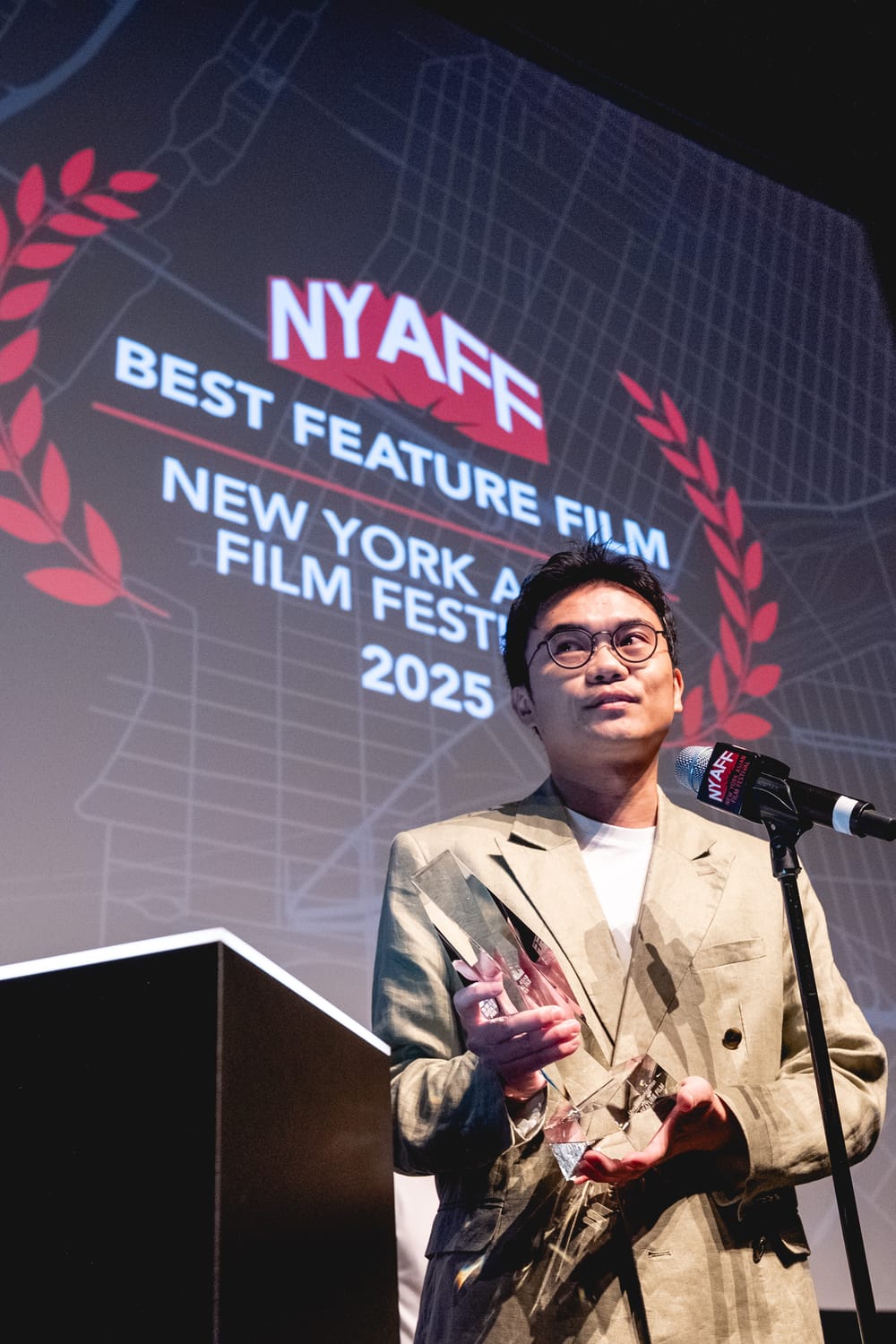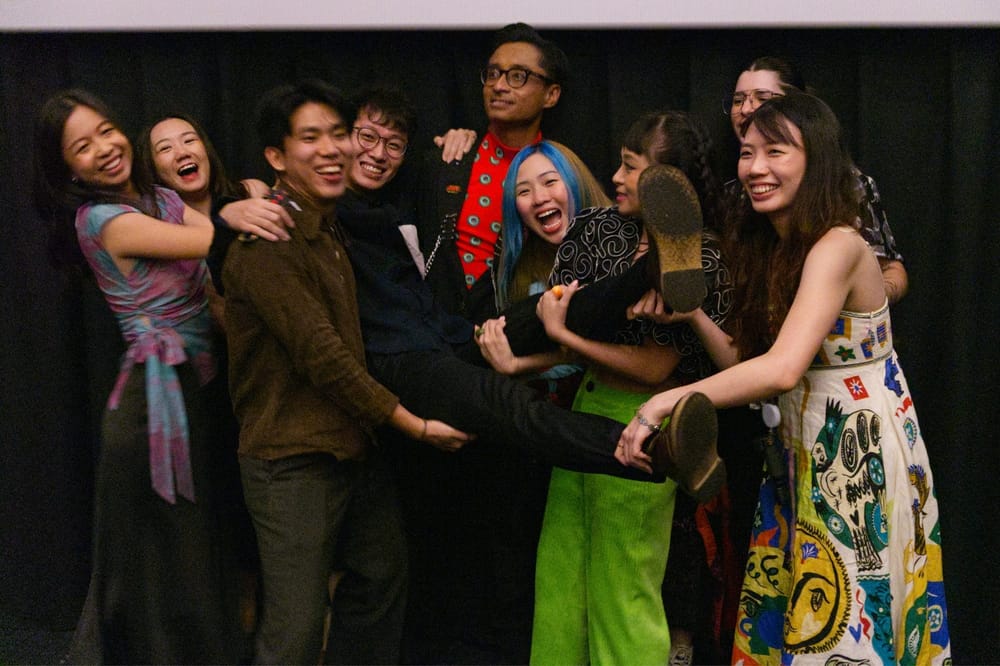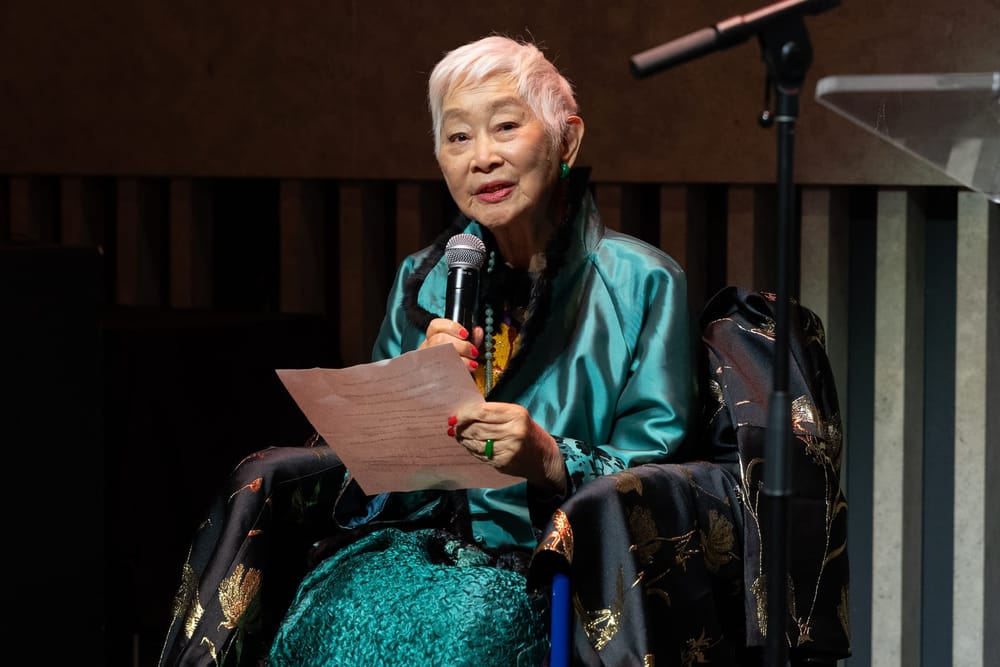By Noel Vera
Jang Jae-hyun's "Exhuma" starts out simply enough: Korean-American real estate magnate Park Ji-Yeong (Kim Jae-cheol) asks shaman Hwa-rim (Kim Go-eun) and her protégé Bong-gil (Lee Do-hyun) to treat his infant son, confined to the hospital for an unknown illness. Hwa-rim recognizes the child's condition as “Grave Calling,” where an ancestor haunts its descendants, in this case the grandfather haunting Park's child, not to mention every first-born in the family. She recruits mortician Yeong-geun (Yoo Hae-jin) and geomancer Kim Sang-deok (Choi Min-sik) to unearth granddad and have him either relocated or cremated (Park insists on cremating the body without opening the coffin).
You start to sense something special about the film when they arrive at granddad's grave. Jang pays great attention to detail -- a shot of the team framed against towering trees that mark the edge of a vast shadow; Hwa-rim asking if Kim has ever seen a grave atop a mountain (he says they're rare; she looks to one side and sees foxes skulking among the trees); the camera again catching the entire team facing an earthen mound peeking up from bottom frame; an ominous whine ascends in pitch and volume to a crescendo -- halts when Jang cuts to a reverse shot of the stone standing in front of the mound. The whole sequence builds up to an impending battle between the three we’ve come to know, and the squat little slab we've just been introduced to.
And Kim won't have it. He takes a bit of earth, tastes it – as he is in the habit of doing – immediately spits it out, walks over to refuse Park's offer and marches back to the car. The rest of the team follow and shut themselves in the vehicle to confer. Kim warns of what may happen if one day they open the wrong grave, and this is the vilest he's seen in forty years. But they all smell the money (half a million, presumably in American dollars), and Park asks Kim point-blank: “Can you save my child?” Kim counters: “You're hiding something from us,” but reluctantly agrees to proceed.
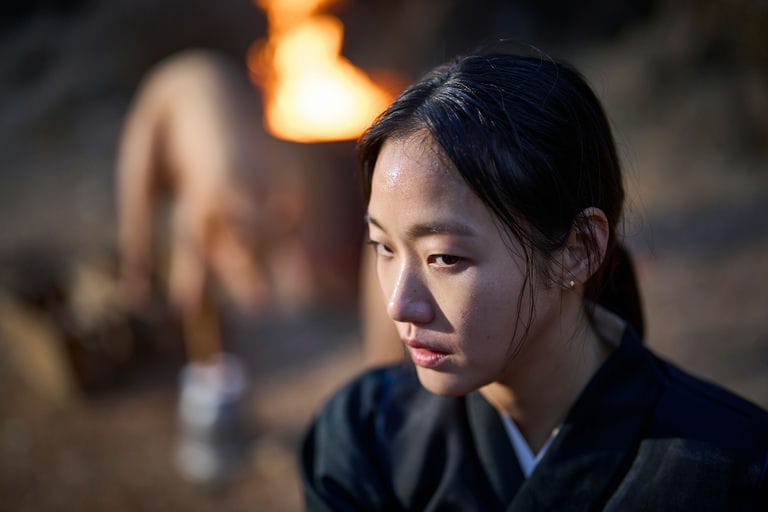
Jang helps sell the scene by sketching each member of this ragtag group and their frankly mercenary attitudes. Kim senses right off that Hwa-rim's friendly visit to Kim and Yeong-geun also involves a big-time proposal (“You got me!” she says, laughing).
Driving to the gravesite Yeong-geun and Kim discuss recent expenses – Kim with his daughter's upcoming wedding, Yeong-geun with the pension he never managed to put together (Kim further speculates that Hwa-rim probably negotiated for a bigger fee, and pocketed the difference). The team talk like seasoned professionals, cynical hustlers who nevertheless believe in the supernatural forces they deal with. They also just happen to believe in making rich clients pay handsomely for their efforts and expertise.
The combination exhumation/deflection ceremony is a tour-de-force of camera gliding, precision cutting, rhythmic drumming, and wild wailing, with vile energy shunted to pig carcasses that Hwa-rim hacks away at with blades. It's bizarre, like no ritual you've seen before, and you get to watch flesh sliced open without CGI or prosthetics.
Things go wrong of course. Wouldn't be a horror film otherwise. Then it's a race against time between the grandfather's vengeful spirit and the shaman team's attempt to contain him. Jang orchestrates the double pursuit – geomancers after granddaddy, granddaddy after his descendants – with real flair, opting not for CGI and quick cuts but practical effects and the slow build of dread. In one of the film's most startling moments Hwa-rim calls granddaddy's spirit down to her shaman protégé Bong-gil and he immediately leaps for her, only a tightly held rope keeping him back. No CGI, only imaginative staging and camerawork.
“The fox severed the tiger's waist,“ Park says in his grandfather's voice, giving rise to the themes and concerns of the film's second half. Suddenly we learn there's a second coffin in the grave, buried vertically, and the team is faced with a more formidable presence. The ghost of Korea and Japan's violent, bitterly antagonistic history is raised yet again, given fresh force by this understated, deftly stylish horror-mystery thriller.
I’ve noticed a trend in recent horror films: inventive premises that are rarely if ever developed well or brought to a satisfying conclusion – "It Follows" and "Malignant" (both USA) and "The Babadook" and "Talk to Me" (from Australia) come to mind – where the filmmakers feel the need to top initial ingenuity with ever more convoluted or outrageous twists.
Jang differs in that he has as much aplomb for mystery and thrillers as he does for horror: he starts with a supernatural premise but carefully plants little enigmas and throwaway details that when either solved or resurfaced send the narrative in a different direction or cast past events in an entirely new light. His plots aren't entirely logical (why should wet wood trump burning metal?) yet have a fantastical rationale we can easily follow or be surprised by as he sees fit.
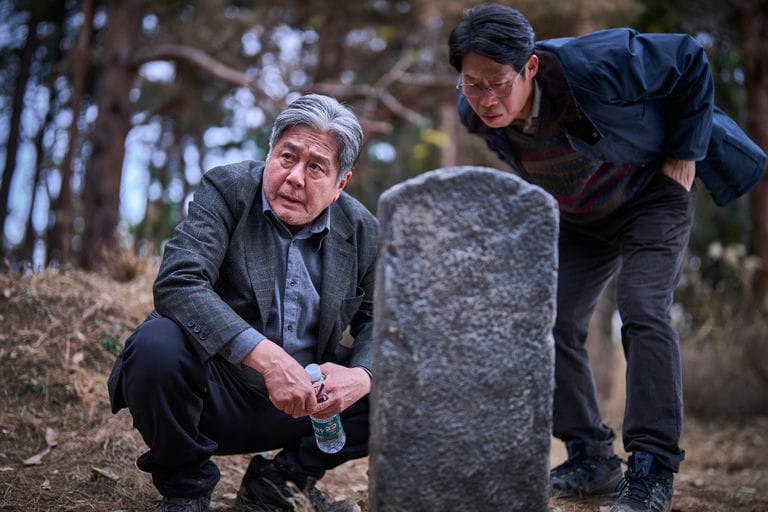
Above all Jang is a horror filmmaker with conviction. Either he believes in the dangers of Korea’s spirit world, or he skillfully presents it in a way that convinces us to believe, or at least to suspend our disbelief.
"Exhuma" isn't in the tradition of dark psychodramas like "A Tale of Two Sisters" or "Rosemary's Baby," where guilt and sin are at the core of the narrative. South Korea’s recent box office hit is more like a situational thriller where teamwork and knowledge born from hard-earned experience will save the day… hopefully. Think John Hough's "The Legend of Hell House" or better yet Howard Hawks' "The Thing" (or John Carpenter's transcendent remake). "Exhuma" is one of the best recent entries in the horror genre.


